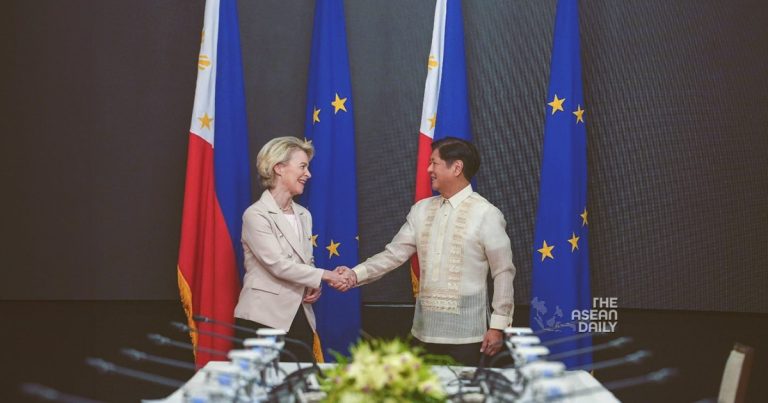1-8-2023 (MANILA) The European Union is prepared to enhance cooperation with the Philippines on maritime security, according to European Commission President Ursula von der Leyen, who emphasized the significance of a free and open Indo-Pacific region. This statement was made after a meeting with Philippine President Ferdinand Marcos Jr. in Manila, where the two leaders discussed various topics ranging from security and trade to climate change.
Von der Leyen expressed the EU’s readiness to strengthen cooperation with the Philippines on maritime security in the region by sharing information, conducting threat assessments, and building the capacity of the Philippine coast guard. The Philippines’ maritime territory encompasses part of the South China Sea, a strategic and resource-rich waterway over which China also claims sovereignty, making it a fulcrum of the geopolitical rivalry between the United States and China.
Von der Leyen reaffirmed the EU’s support for a 2016 international arbitration ruling that invalidated Beijing’s expansive claims to the South China Sea, saying the ruling is legally binding and provides the basis for resolving disputes peacefully. However, China, whose “aggressive” actions in the area have been the subject of hundreds of diplomatic protests filed by the Philippines, does not recognize the landmark ruling.
Von der Leyen stated that “an Indo-Pacific free of the threats of coercion is key to all our stability, to our peace, and to the prosperity of our people.” Her visit to Manila was the first by a European Commission president in nearly six decades.
The leaders also discussed relaunching negotiations for a free trade agreement, which have been stalled since 2017. The talks were initially launched in 2015 with the goal of concluding a deal that covers tariffs, non-tariff barriers to trade, and intellectual property, among others.
Von der Leyen also pledged the European Union’s support for the Philippines’ fight against climate change, which is a priority for Marcos as he seeks to increase renewables in the country’s power mix to 35% by 2030.




